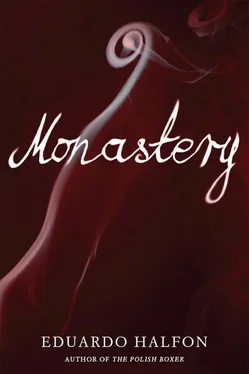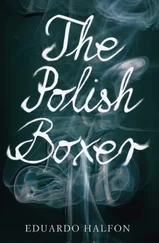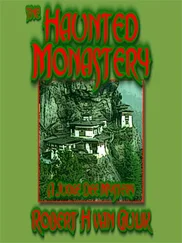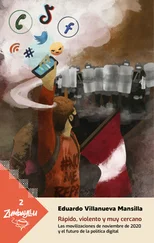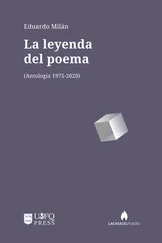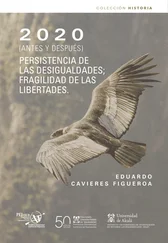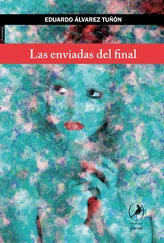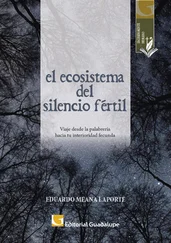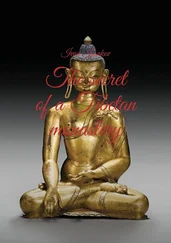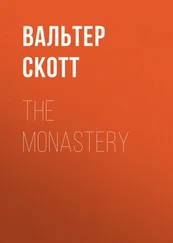SHINE. A BOY OF TEN OR TWELVE had approached me silently, from behind. Shine, he repeated, more a command than a question, and I said no, thank you. He had faint polish marks on his dark face and wore an old pair of enormous adult shoes, patent leather, and no socks. He needed both hands to bear the weight of his black wooden box of jars and dyes and waxes and brushes and dirty rags and who knows what else. Shine, mister, he said, not looking at me, almost not even trying. The two police officers were still staring at me from a distance. The woman with the basket had a stick in her pot and was stirring the atol. The boy suddenly plopped down onto the bench, at a slight distance from me, and deposited his wooden box on the ground. I asked him his name. Macario López y López, he replied decisively. Do people call you Macario? Sometimes, he mumbled. And sometimes Maca. I asked him if he knew where Doña Tuti’s café was. Where’re you from? the boy asked, and I said in my best Guatemalan accent that I was Guatemalan, same as he was. He smiled, not looking at me, incredulous. Don’t look like it, he mumbled. Where do I look like I’m from, then? He shrugged his shoulders. Don’t know, he said, not here though. I asked him if he knew the Esquipulas Co-op offices. The coffee co-op, I said. Iliana Martínez’s place, I added. Do you know Iliana Martínez, Don Juan Martínez? But the boy said nothing. He stared straight ahead. Buy me a tostada, mister, for my breakfast? I noticed that the two police officers were walking toward us, by the NaranJugo goal. They were still watching me, solemn or maybe just curious. Suddenly, they flicked down their cigarettes onto the plaza, as though getting ready to do something. I slid my hand into my pants pocket and was about to pull out some change so the boy could buy a tostada from the woman, when he bluntly, almost nonchalantly, said: Oh, that Martínez family is kin of the one that got killed, right?
THE CO-OP ENTRANCE WAS a high, wide-open warehouse that served as storage unit during harvest time. From the white walls and corrugated tin ceiling hung ribbons and strings and papier-mâché streamers — perhaps a failed effort to give the place a more festive air, or perhaps they’d simply forgotten to take down the decorations after a birthday or anniversary.
I was standing in the middle of the warehouse with a coffee grower, a co-op member from the village of Chanjón, in the municipality of Todos Santos Cuchumatán, who that morning had made the long, arduous, four-hour drive to La Libertad.
Good coffee, yes? he said suddenly in an obstructed Spanish, a protracted Spanish, a Spanish molded by his Mayan tongue, Mam. We were each holding our cup of coffee. It is, I said. Very good. We appreciate it now, he said, we know how to drink it now, but before, at home, all we drank was instant coffee, or sometimes backwash coffee, pulp coffee they call it here, or sometimes we drank nutcoffee. I hadn’t heard him properly or else I didn’t understand. What’s that? He stood silent a moment, looking up, his mouth half-open, as though allowing each of his words the time to make the leap from one language to another. That’s what we called the very cheap beans brought in from the lowlands, he said, from the coast, where people from town went to work in the cane fields or in the cotton fields. He smiled weakly. He was holding an imaginary cheap bean between his thumb and index finger. We toasted them on the comal, he said, and then we crushed them with a grindstone. Tasted a little like coffee. But it wasn’t coffee. That’s how it got its name. Not coffee. Or notcoffee. Or nutcoffee. Something like that. That’s what we used to drink, before.
Cruz Pérez Pablo was his name, and it took me a moment to realize that Cruz was his first name, Pérez his second name, and Pablo his last name. As though his entire name had been assigned backward. As though he lived back to front. Cruz Pérez Pablo. A gallant name, one that deserves to be projected onto a huge white screen. He was dressed in the traditional clothes of Todos Santos Cuchumatán: red trousers with gray stripes; a blue-and-white-striped long-sleeve button-down shirt with thick, colorfully embroidered trim down the front and on the collar; a small straw hat with a band made of the same fabric. I stood looking at his clothes, so beautiful, so colorful, such a proud and unequivocal symbol of his identity, although its origins dated back to Spanish rule, centuries ago, when the multiple patterns and colors were nothing but a system imposed by Spanish caciques to differentiate their indigenous slaves by territory.
He personally had prepared the two cups of coffee as we waited for Iliana and her father. Hot robust coffee, slightly acidic, slightly chocolaty. We were drinking — taking communion, I thought at the time, with coffee from his own land, coffee cultivated by his old hands — and a few members were coming and going, and Cruz Pérez Pablo would introduce them to me and they would remove their hats or baseball caps and shake my hand firmly and introduce themselves again, welcoming me to town and to the co-op, enunciating their names with pride, casting them like fruit or like a poem onto that enormous white screen.
THE BIRDS ARE BACK. The squirrels are back. The kinkajous are back. The raccoons and the coati and what people here call tusas. Really big moles. Really delicious too, if you can manage to trap them.
Don Juan Martínez was squatting beside one of his plants. As he spoke, his hands seemed to work autonomously: gathering dry leaves from the ground, pulling out grass and weeds and sickly twigs. Iliana, beside me, simply let him speak.
We’d stopped seeing birds, Señor Halfon. We’d stopped seeing animals. This hillside was all bare, completely stripped, not a tree left. You see, people had to chop down all the trees on their land in order to plant maize. Plus, he said, they needed the wood from those trees for their comales, to heat their homes, to cook. Don Juan stood. He pushed back his worn straw hat. Just look at this hill now, he said. It’s full of cypress and pine again, full of shade trees for the coffee, like cushín, which is that one there, and the one over there, which is what they call inga. He lowered his arm, taking his time, and went on. Now that the co-op is up and running, coffee brings us enough money to buy our maize, so we don’t have to plant it. Now our own coffee plants and our shade trees, when we prune them, give us enough wood for the comal, so we don’t need to cut down any other trees. Now we plant trees, said Don Juan. And there’s nothing better, Señor Halfon, than giving life. Giving life not just to coffee plants and trees, but to the mountain itself.
The three of us kept walking, single file, down a dry narrow trail lined with very green coffee plants decked with very red fruit. Iliana was pointing out which plants were arabica and which were bourbon and which were caturra. Those are the best varieties, she said. That’s all I have here, on San Andrés Farm, said Don Juan, and smiled. We try to get members not to plant cataui or catimor anymore, Eduardo, since those varieties don’t produce such good coffee. Don Juan stopped, crouched before a plant, and pulled off a short branch at the bottom. You have to pull out the offshoots, explained Iliana, watching her father, to thin the plant so that it produces better beans, better coffee. At first, she said, it was very difficult to make the older members understand that. Don Juan seemed to stroke the plant’s trunk with affection after pulling out its offshoot. People around here were used to a plant producing a lot of coffee, said Iliana, and of course, when you remove the offshoots, that plant produces fewer beans, but those beans are much higher-quality. The plant invests all of its energy, you could say, into producing less fruit, but that fruit comes out better. As I listened to Iliana speak, as I observed her and her father, a forbidden question suddenly popped into my head, an almost biblical question, a question that must never be asked, a question that could only occur to someone with no offspring. And I swallowed bitterly. It’s like pledging quality over quantity, you see? Iliana went on, and that pledge marks a change not only in the way members grow coffee, but also in the way they conceive of themselves.
Читать дальше
